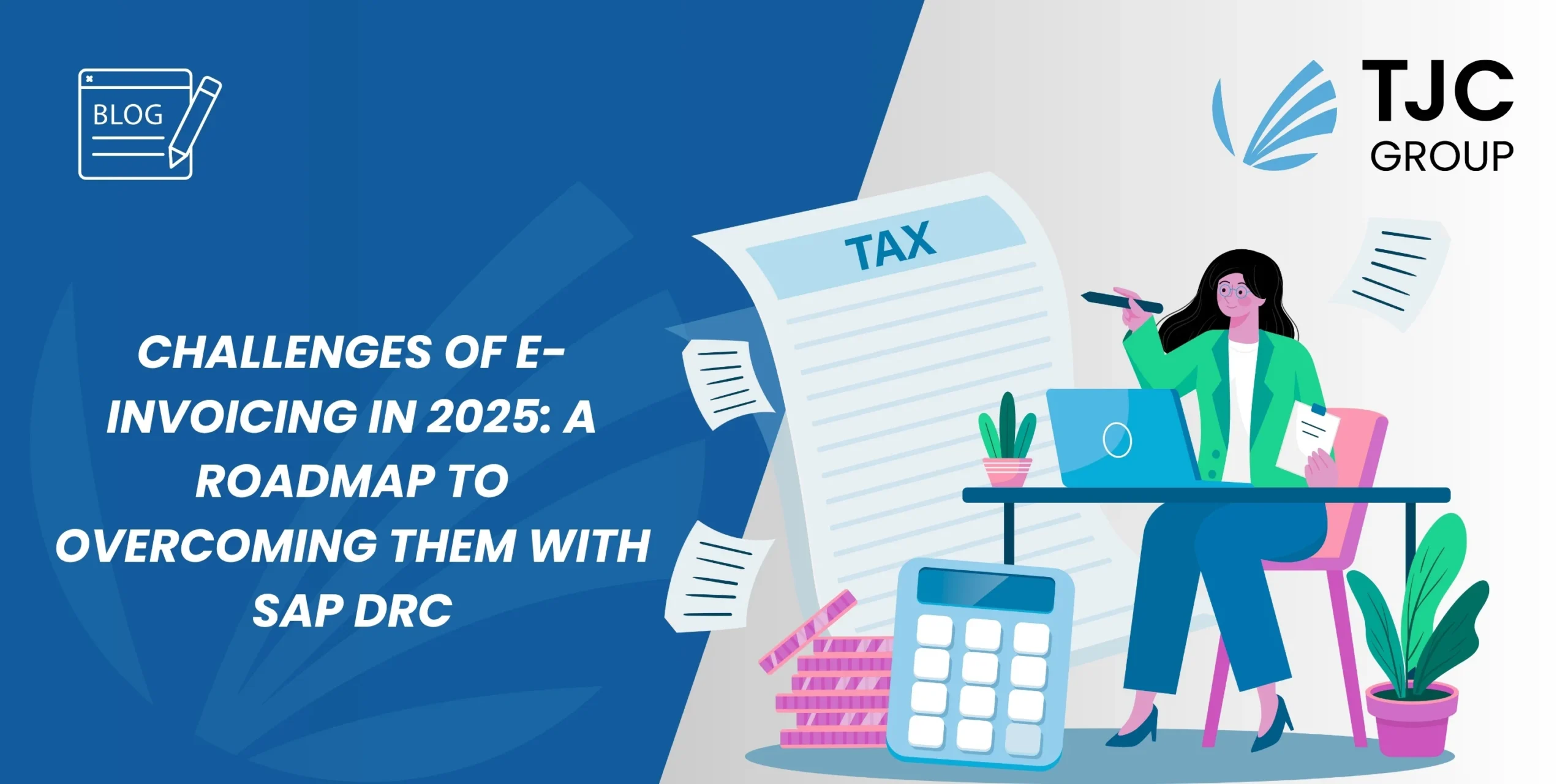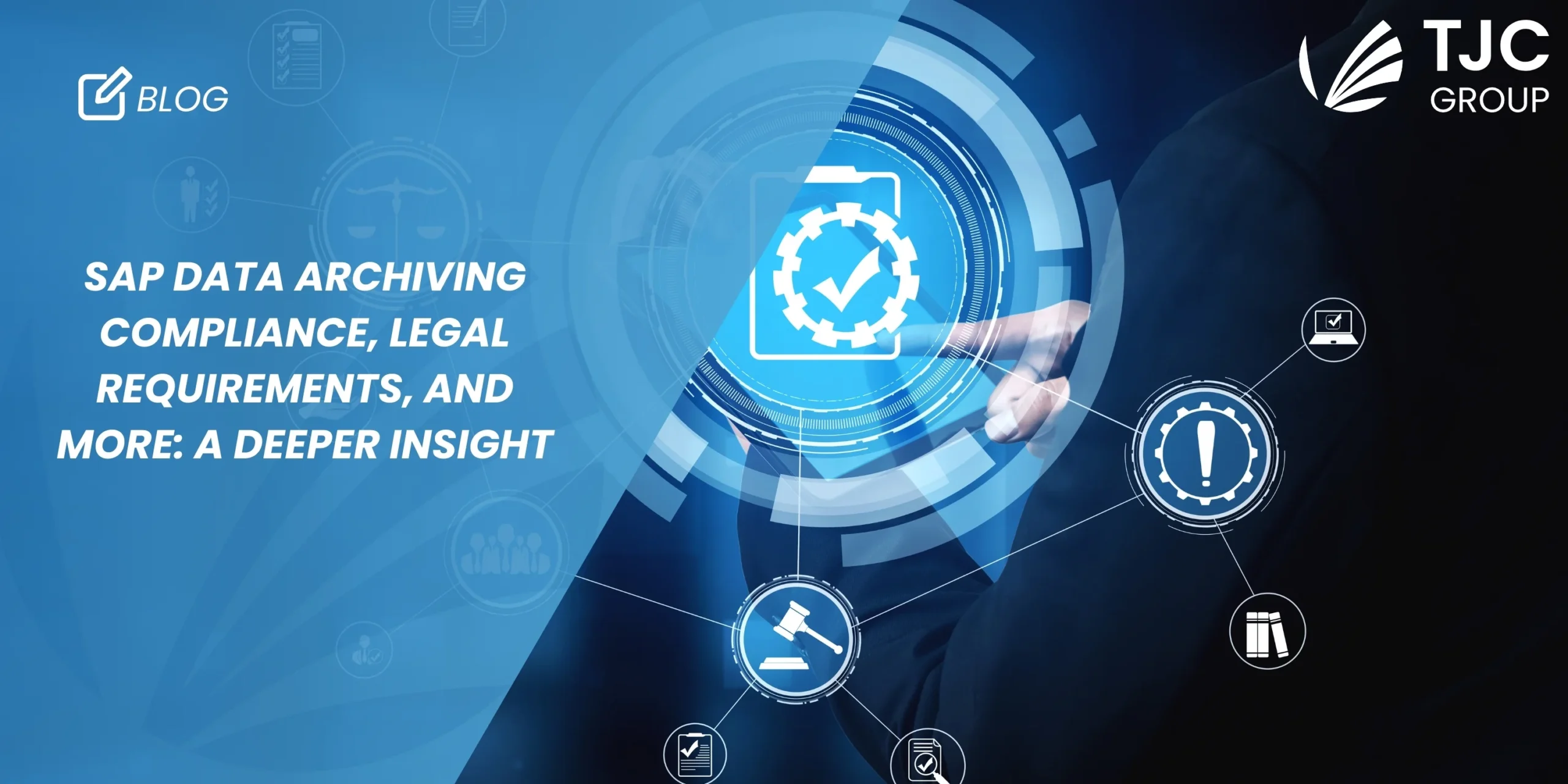Author: Olivier Simonet, VP of Marketing and Sales at TJC Group.
Any data archiving project involves managing data, which is a critical asset within any company, therefore it’s likely that several challenges are encountered along the way. This article highlights 5 reasons why SAP data archiving projects can fail and advises on how to get the organisational buy-in needed to ensure your data archiving project doesn’t stall.
Understanding data owner psychology
Over the 2 decades since TJC Group was founded, we have encountered many different SAP data management projects. There have been times when what could be a relatively straightforward goal from a technical standpoint ended up being fraught with difficulties. In these situations, the project can stall, expected results aren’t achieved and some archiving elements can remain unfinished.
Typically, these types of problems originate from issues emerging among the actual business users. They are more to do with the way data is owned and managed inside their organisations than the technicalities of archiving.
Here there are 5 reasons why some Data Archiving projects can fail and how to address them firmly:
1. Lack of clear objectives
It may seem obvious but very often a company will start a data archiving project without having clear objectives of what they want to achieve. The process of archiving in itself isn’t the objective and when a project begins, clear targets should be set and agreed. These could comprise some or all of the following objectives:
- Volume saving. What is the volume savings target, e.g. taking the database size down by 30% up to 70% in some cases.
- Technical scope of work. Clients often tell us they want to archive their biggest tables, but this needs to be related to archive objects, because it’s the tables that integrate to populate archived objects. Agreeing the technical scope of work involves specifying the following:
- How will the archived object be readable?
- What is the residence strategy for each object and company code? It’s important to align the same residency strategy, no matter what company code it is for.
- How will recurrent housekeeping tasks be managed once the data archiving project is completed? Data keeps on being created and its growth needs to be permanently managed. When the project is finished, someone will have to keep those data volumes under control, either manually or automated.
- How will information from archived files be extracted for audit or Tax purposes if needed?
- Often companies encounter difficulties when archiving data and documents because of open processes – transactions that are effectively obsolete but can’t be closed in the system. For example, an old sales order specifying 100 items but only 99 were delivered. These need to be closed smartly to be able to archive off the record.
You can find more on why data archiving needs to be part of your housekeeping routine in this article: https://www.tjc-group.com/blogs/why-sap-data-archiving-needs-to-be-part-of-your-weekly-housekeeping-routine/
2. IT departments treating the project as a business initiative
The key element here is building confidence, being able to demonstrate that the data is in safe hands and readily accessible to users, auditors and regulators, whatever happens.
In any data archiving project, if IT leaders can initially position the project as a technical priority and make the business users confident that their data will always be accessible if needed in the future, this removes any buy-in issues and objections.
3. Build bridges between the IT department and business users
Communication is another common hurdle and there is often some tension within an organisation between the IT department and business users. Together with the employees and intellectual property, data is one of the most important assets in any organisation. It’s understandable that users don’t want to archive or delete data, they are worried about the future implications. It’s imperative that IT speaks the same language as business users, and can find a way to unite the different areas of the organisation around a shared goal. In some instances, having an intermediary involved with the project, like TJC Group, that specialises in data management and also speaks the same language as both the IT team and business users, can be very advantageous.

4. Data hoarding tendencies
We probably all know at least one hoarder and maybe it’s you. People keep hold of things they attribute value to – things they might need in the future. There is a lot more to hoarding than just a simple desire to hold onto ‘stuff’ for the sake of it. One of the big contributing factors to hoarding behaviour is a fear of making mistakes and having perfectionist tendencies. If users are frightened that they will be caught out in the future when data is archived, or if they think they might regret it as a mistake, they won’t get behind the project and block it.

“According to study conducted by Veritas* among 10,000 IT decision makers and office professionals throughout the globe, 82% of IT decision makers believe that their company is a data hoarder.”
Data hoarding is costly and creates project delays, but the behaviour is understandable. Engaging a data management expert can help navigate the buy-in process by reassuring the most resistant players they can archive data and eventually delete it without feeling anxious about the implications.
5. Difficulty identifying the data owners
It can be difficult to identify who the actual data owners are in an organisation and it becomes especially tricky in large companies that have grown by acquisition and are using multiple SAP systems. It’s even more complicated when the individuals concerned are different to the actual data users. At TJC Group we have encountered many cases like these over the years; the best policy is to work with team leads, listen to their fears and provide compelling answers to obtain buy-in.
Consider a scenario where you need to archive 5 archive objects for 10 company codes. This would involve discussions with local teams in 10 different countries because each one may have different legal requirement. Also, sometimes you might come across key people that do not wish to engage in such type of projects, and that slows the decision-making process. To twist the knife in the wound, this kind of situations will require multiple meetings and discussions with many different data owners – it’s very difficult to coordinate all the different teams and achieve a consensus. As a result, all these discussions must be handled by Project Managers experienced Data Archiving and skilful Senior Consultants versed to deal with such complex discussions and who can deploy a core strategy.
You might find interesting to read this interview with Satya Prasad, a senior SAP Data Archiving & ILM expert at TJC India, with plenty of experience with handling complex situations like the one described above above: https://www.tjc-group.com/blogs/interview-with-satya-prasad-sap-data-archiving-ilm-expert-at-tjc-india/
Conclusion
In any Data Volume Management project, it is essential to identify the key players – those that will embrace change – and the resistant ones that will push back the project. Work with them to provide reassurance while putting the leaders alongside the users posing more resistance. Ultimately, follow the best practices on Data Archiving projects SAP and SAP Partners like TJC Group with decades of experience in such a niche subject.
Head to our Client section to find SAP Data Archiving customer stories: https://www.tjc-group.com/our-customers/
If you would like to learn more about data archiving in SAP and how to make it a success inside your organisation, contact the experts at TJC Group.
References:
- The Data Hoarding report: The Data Employees Save Puts Businesses at Risk, Veritas. Link: https://www.veritas.com/content/dam/Veritas/docs/reports/Veritas-Data-Hoarders-Report-US.pdf










